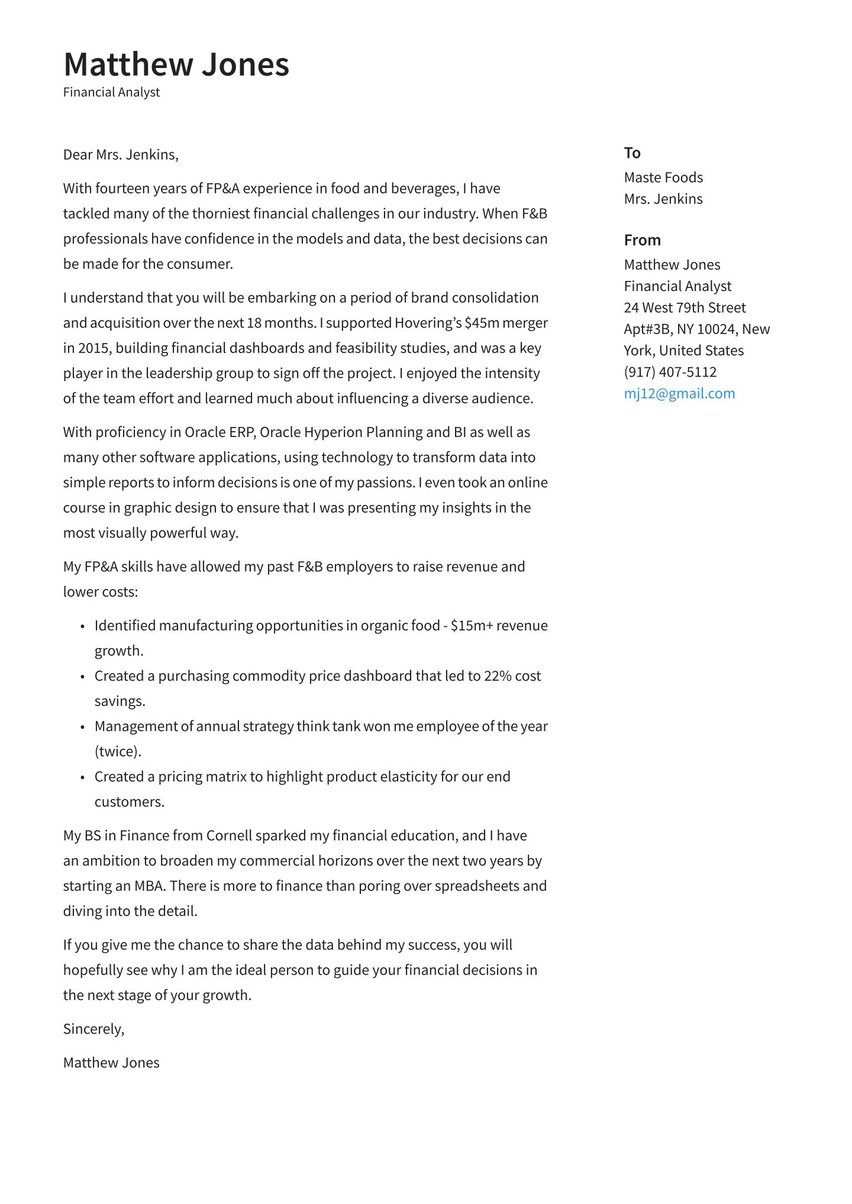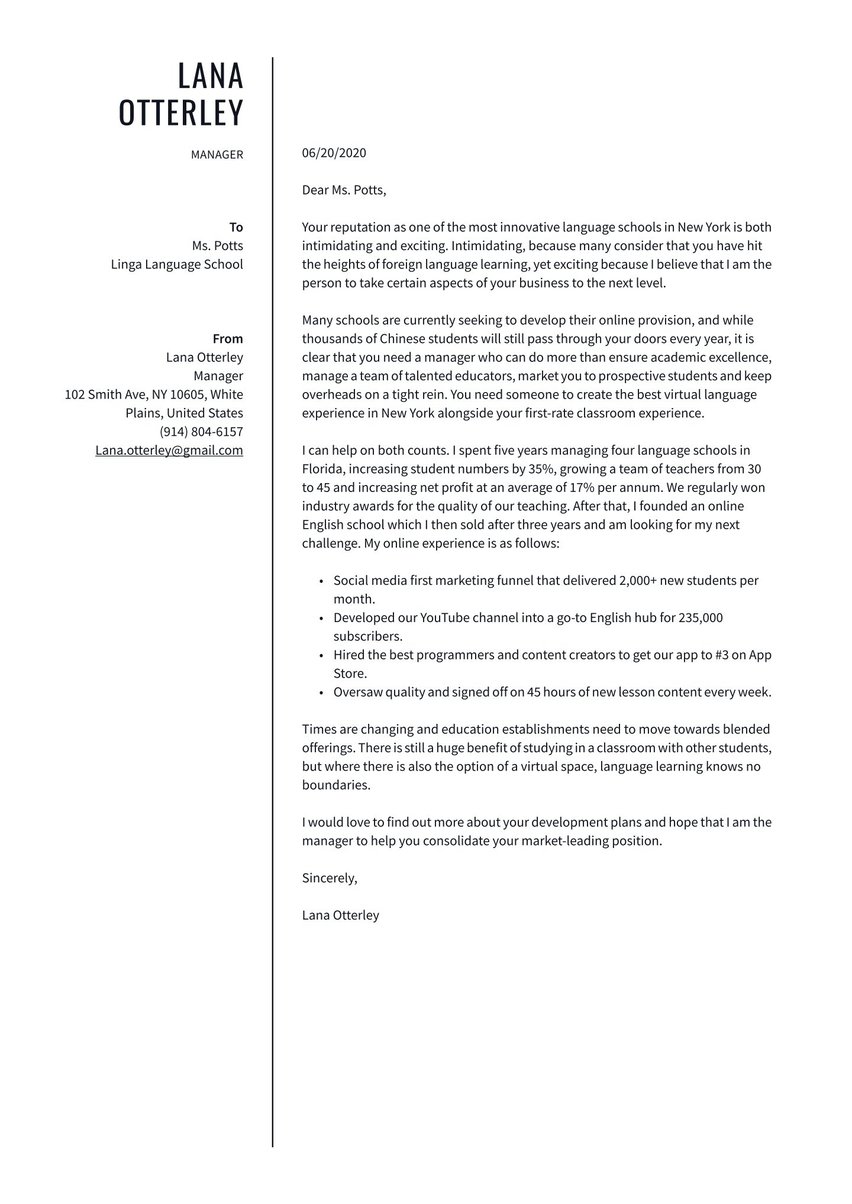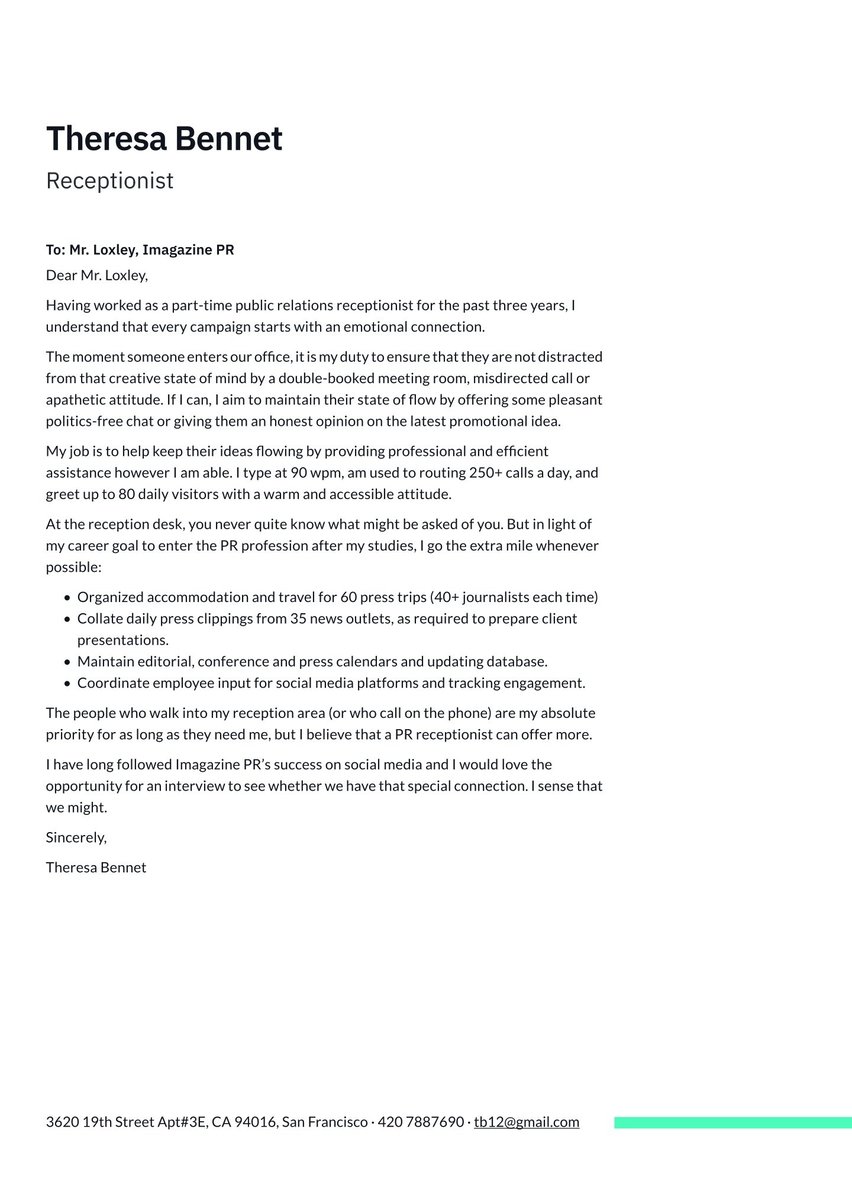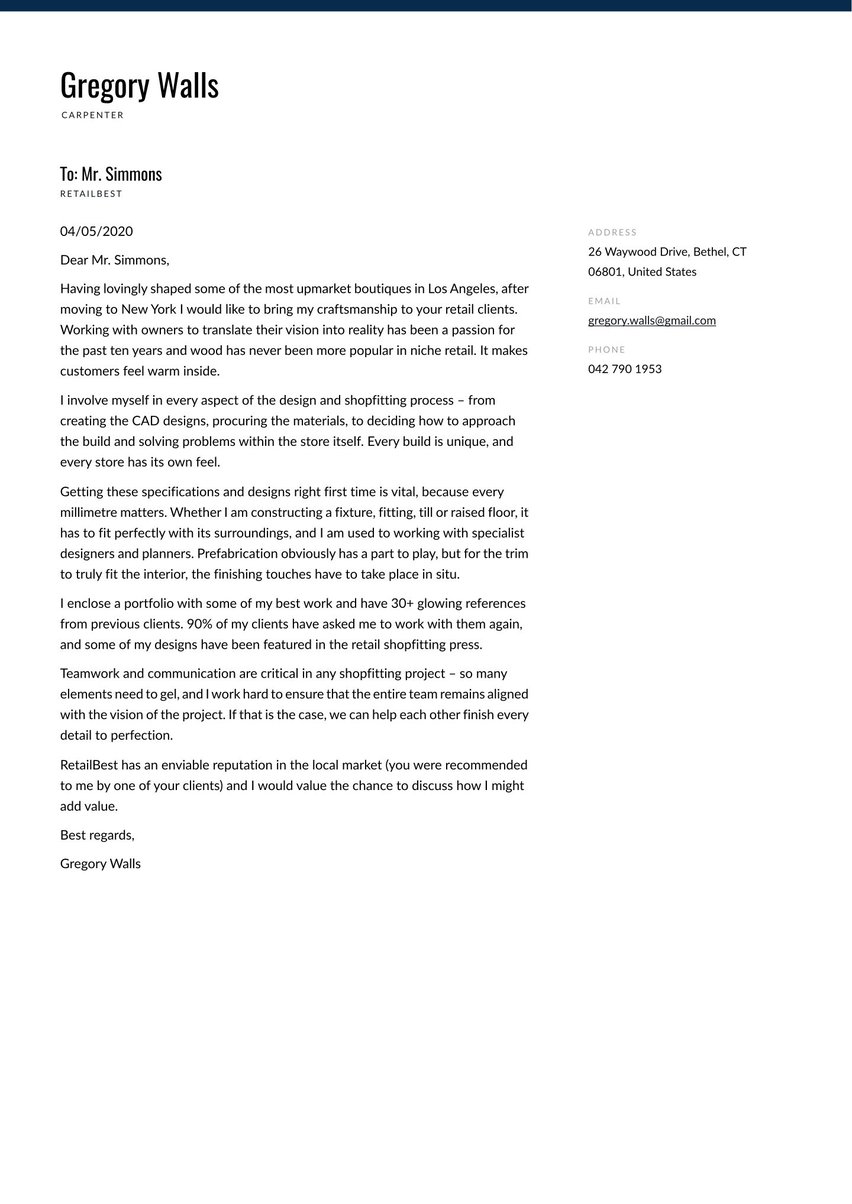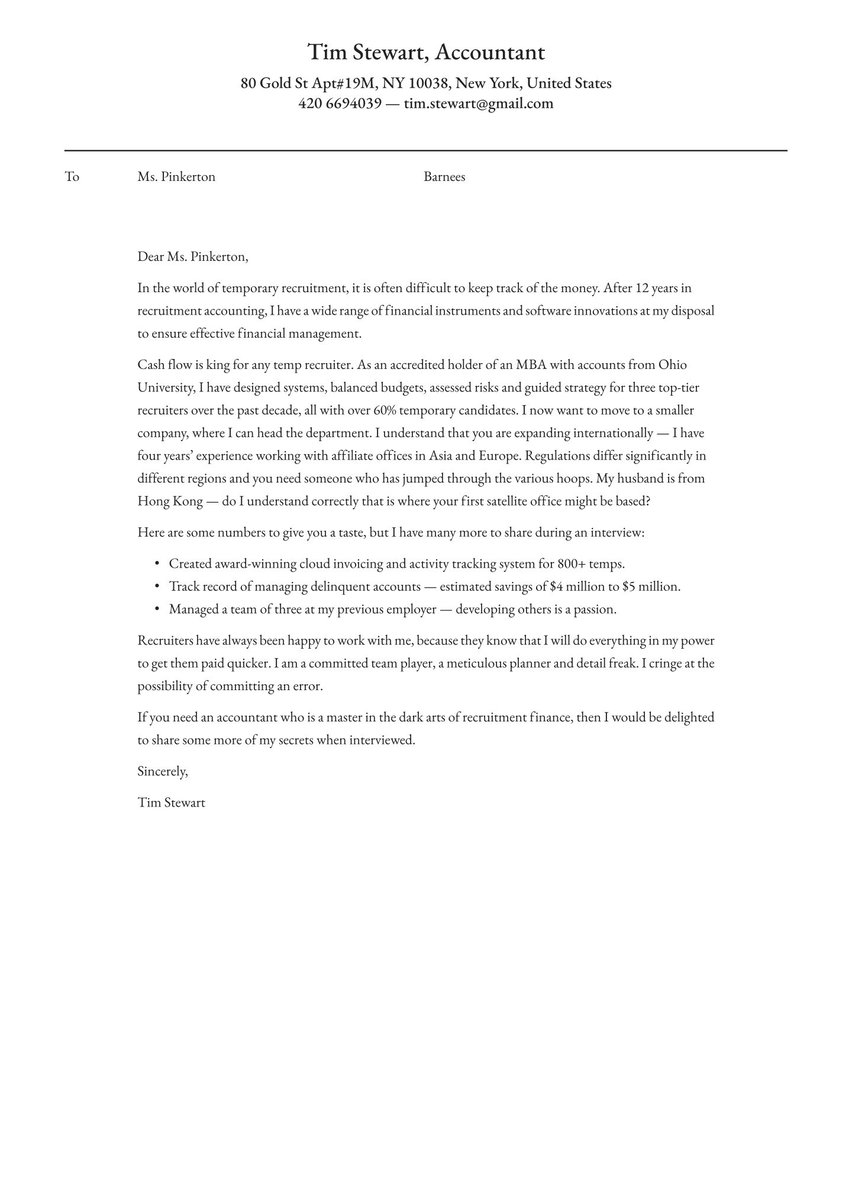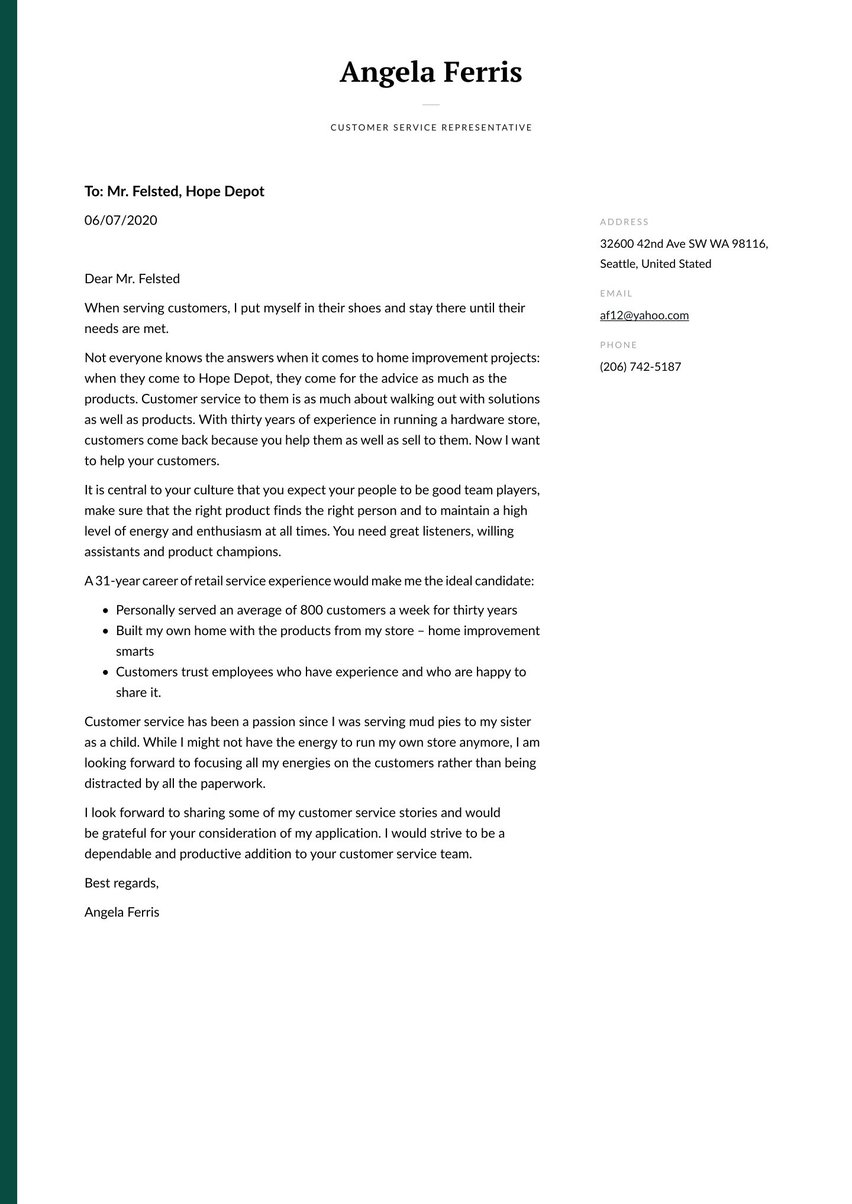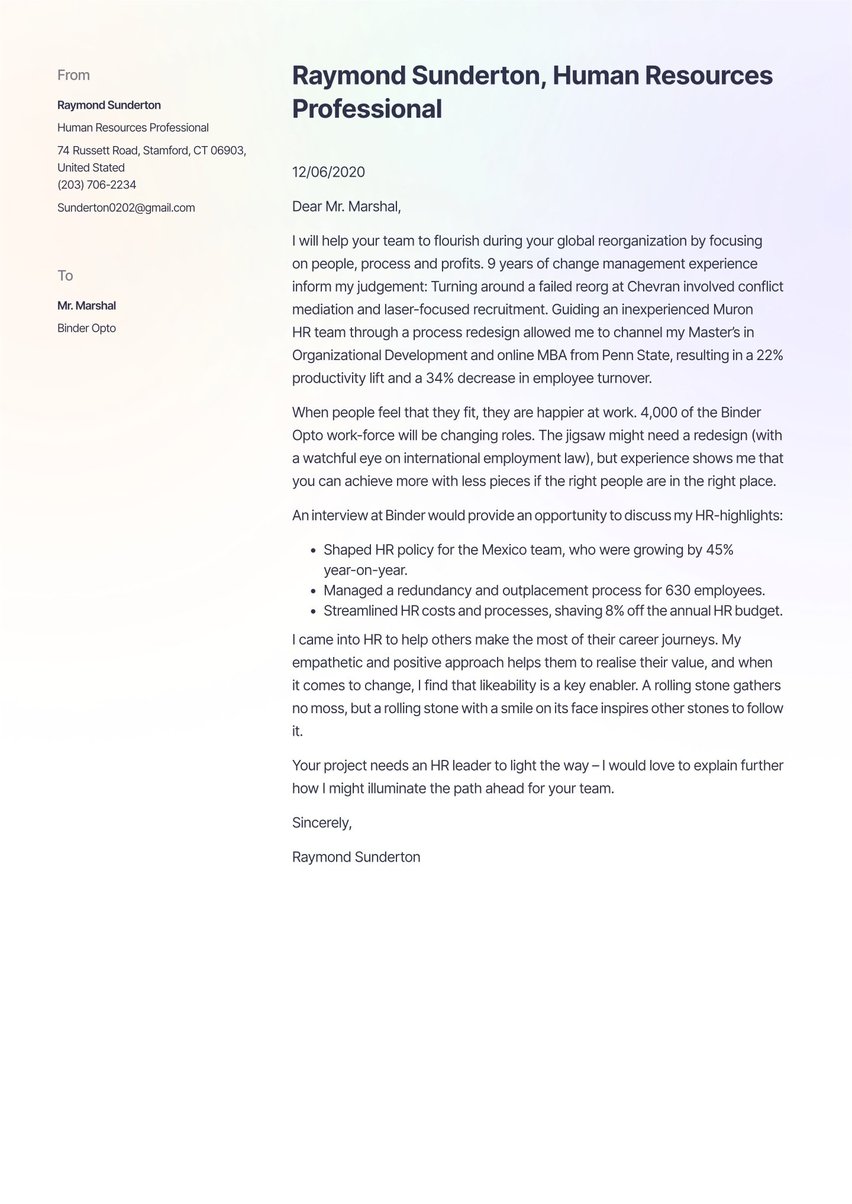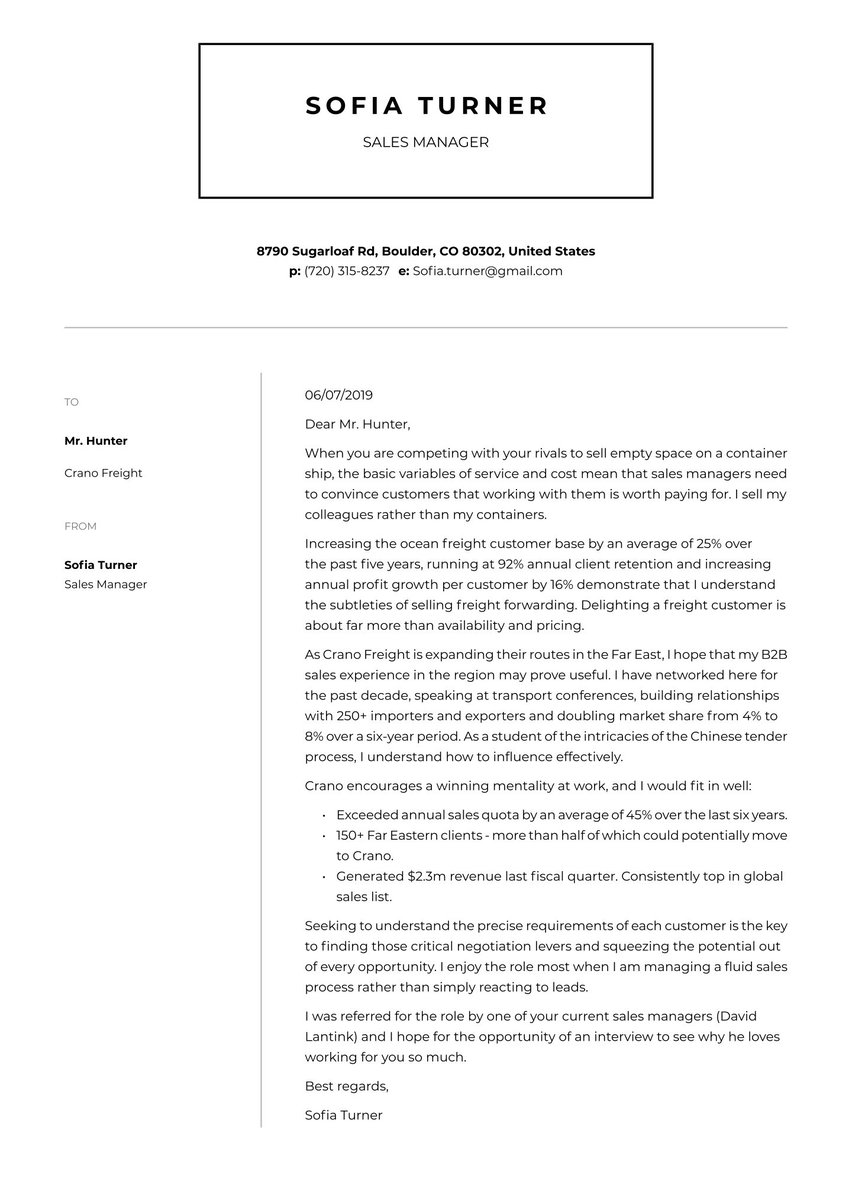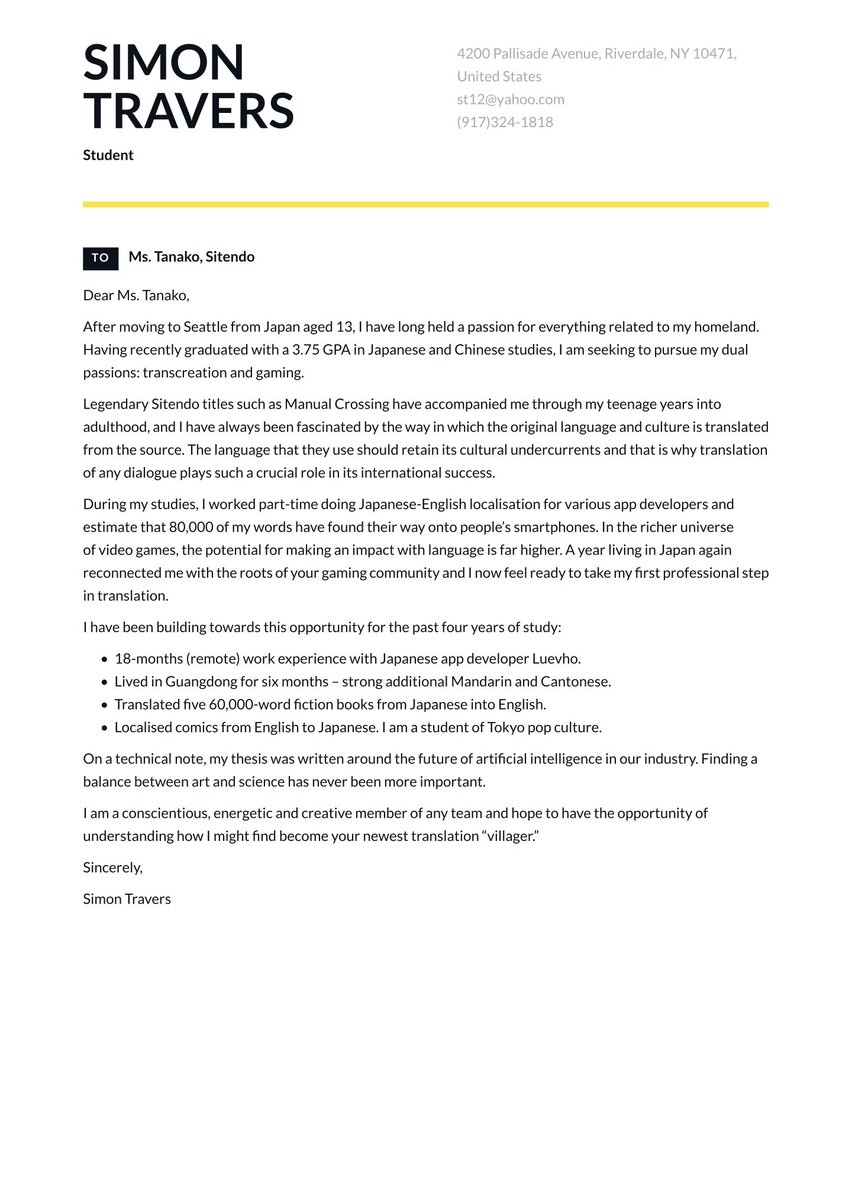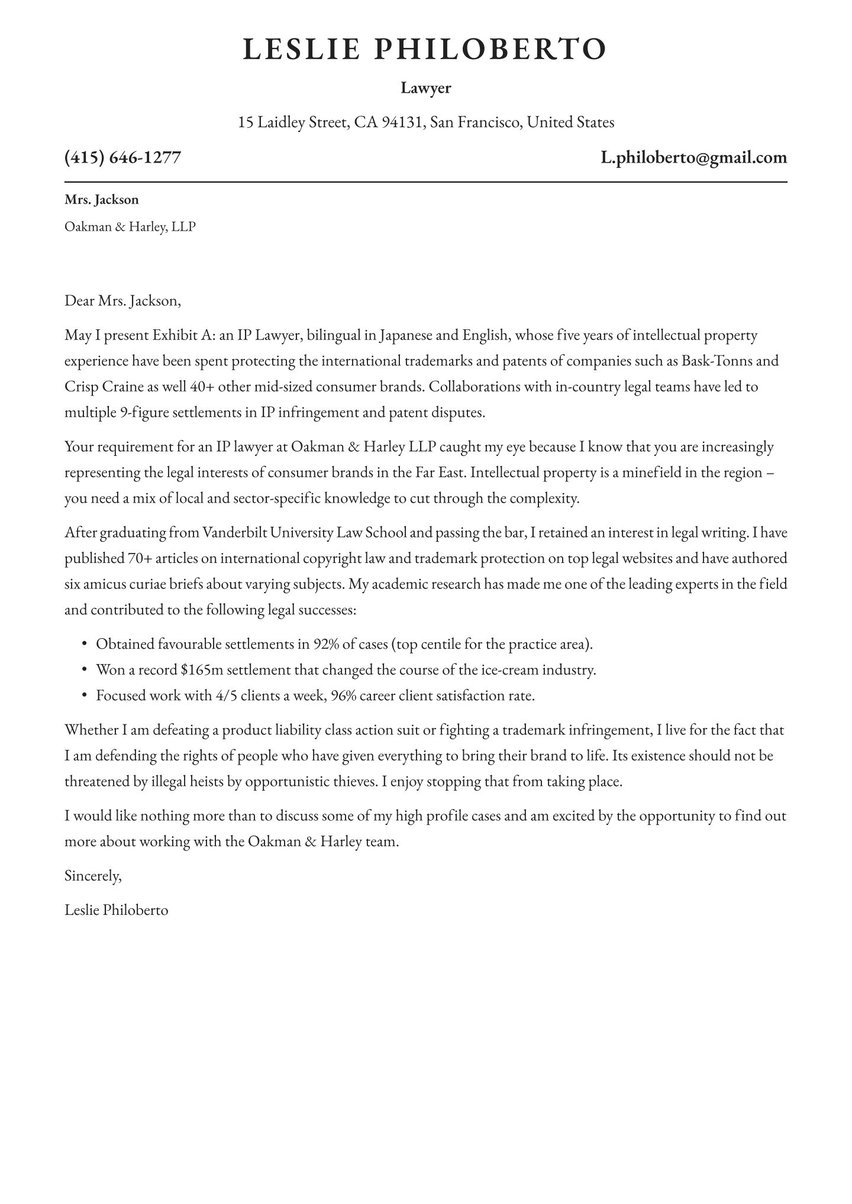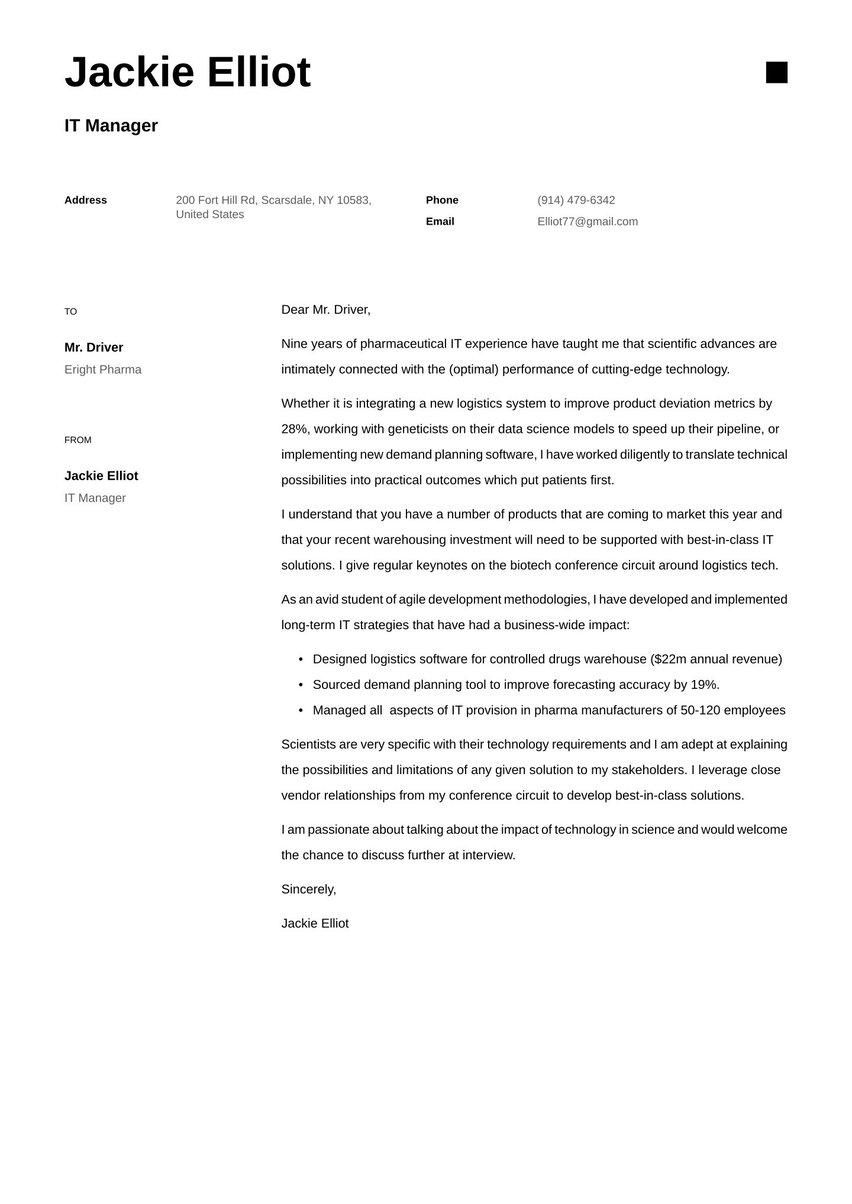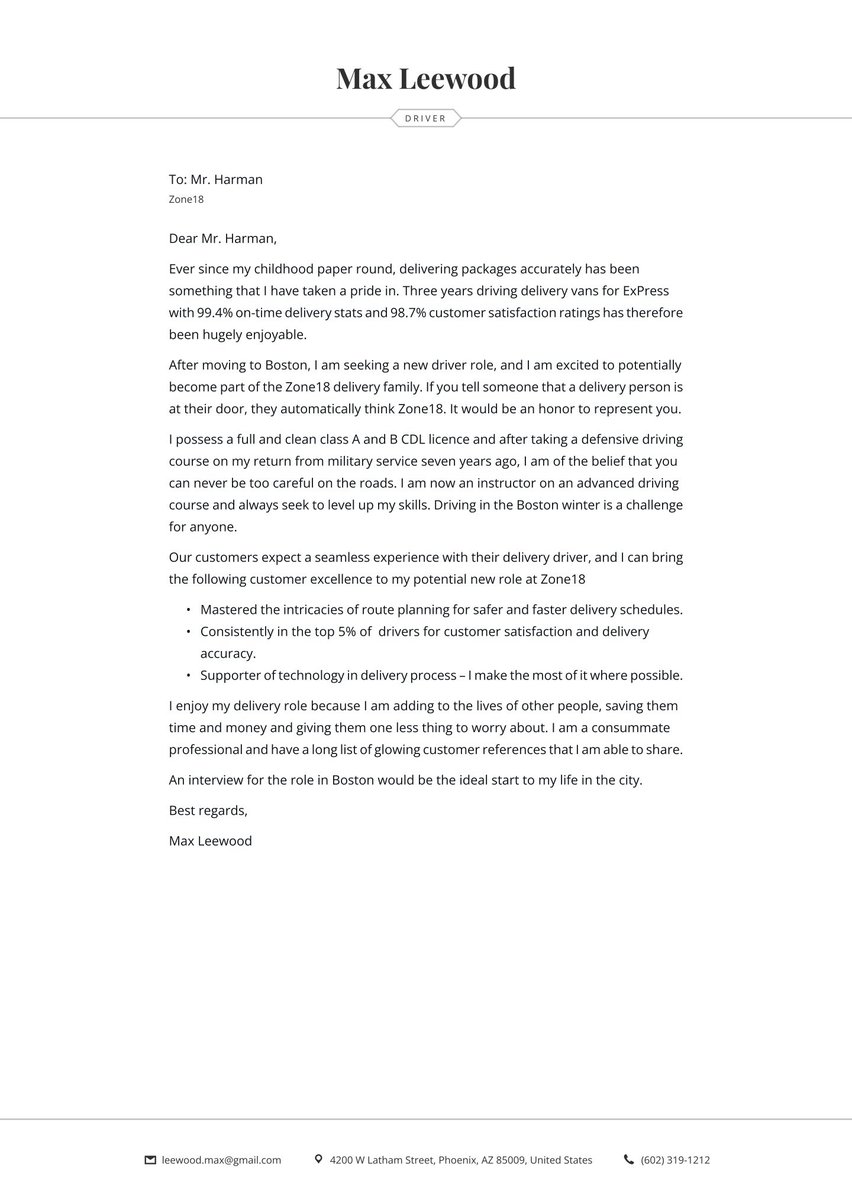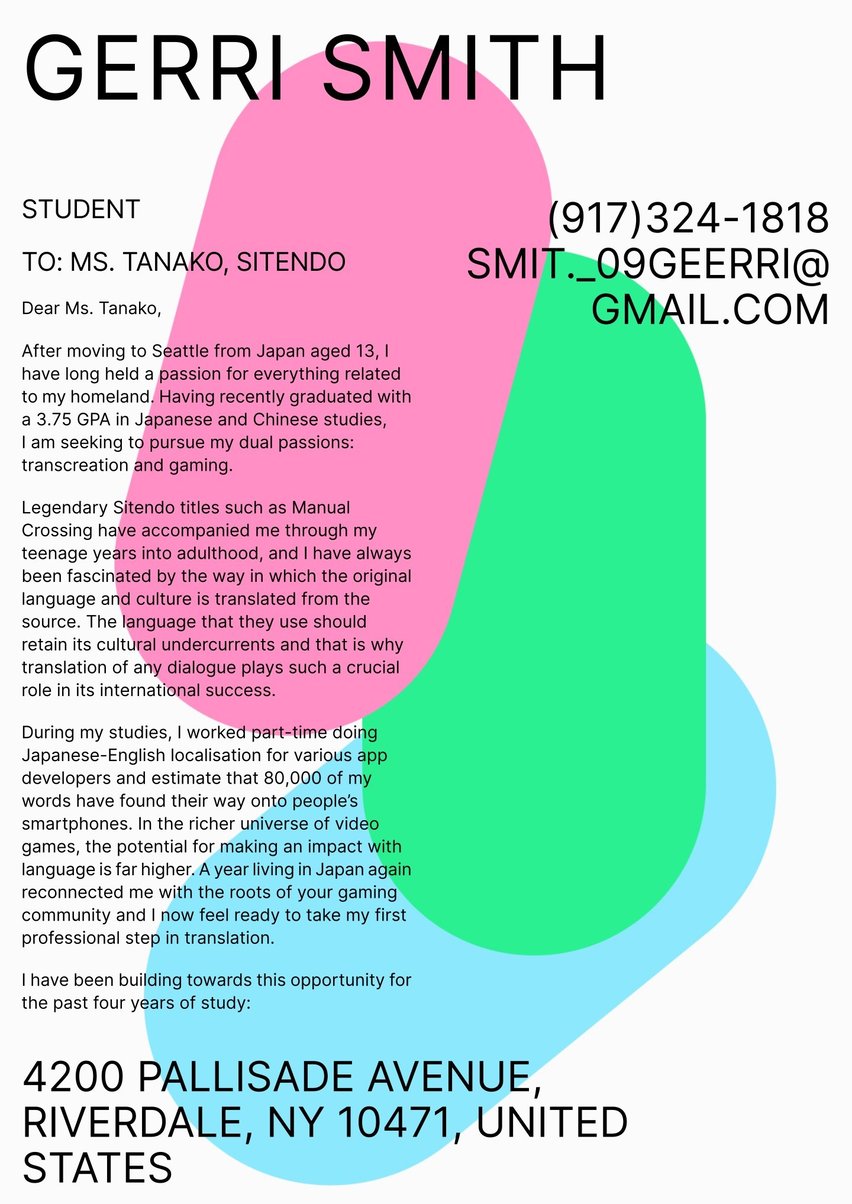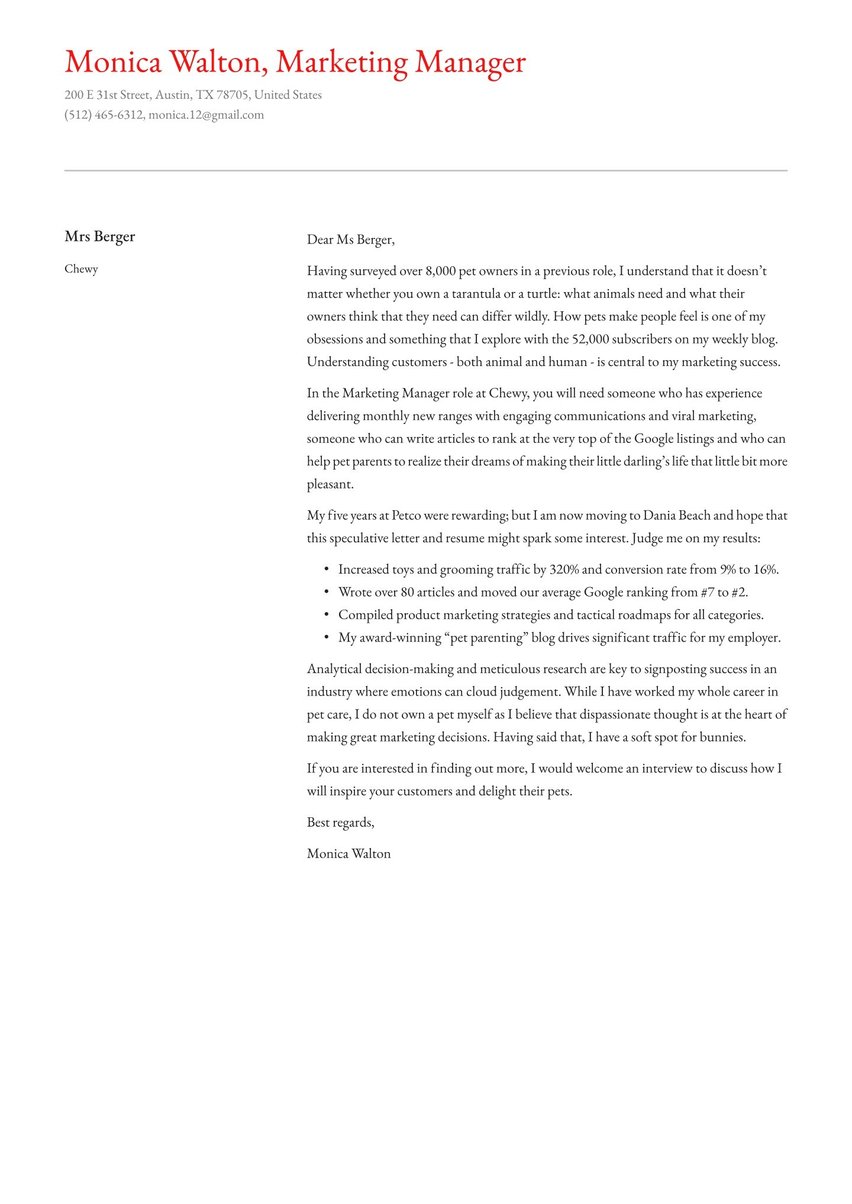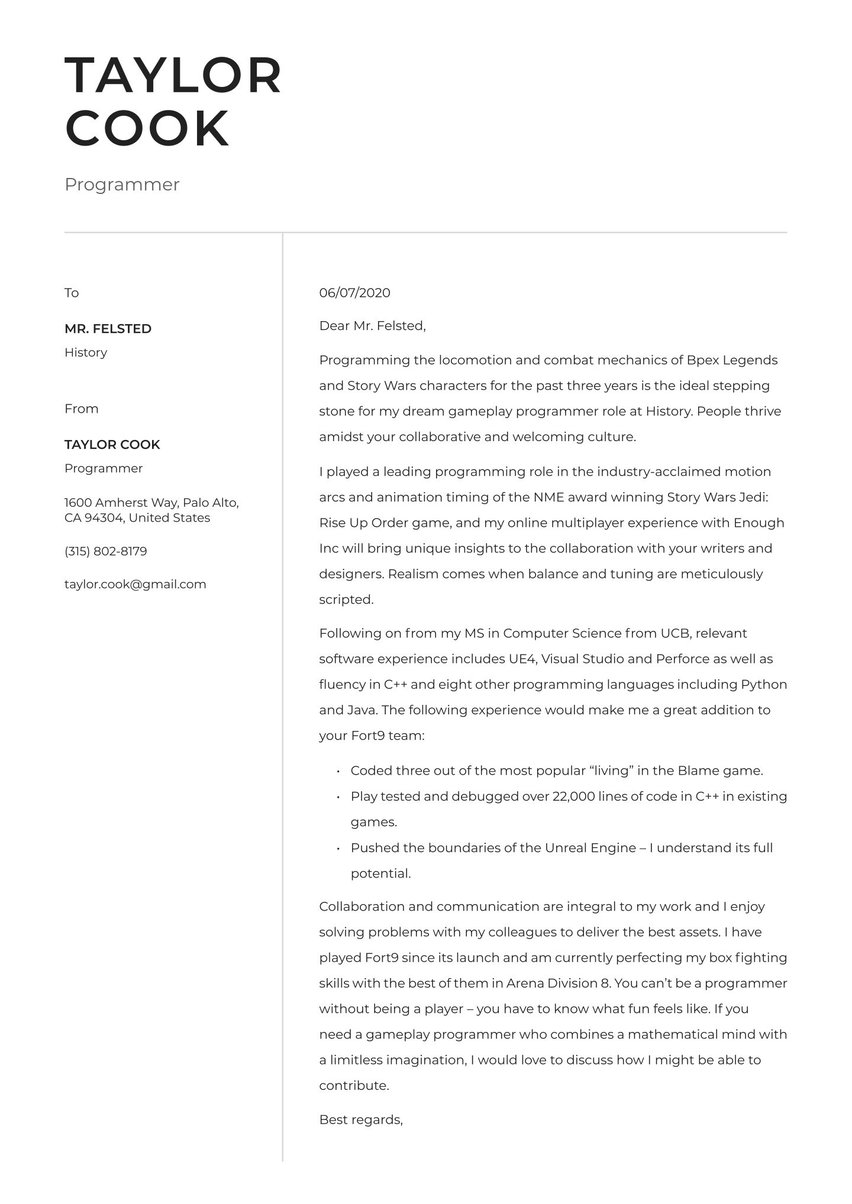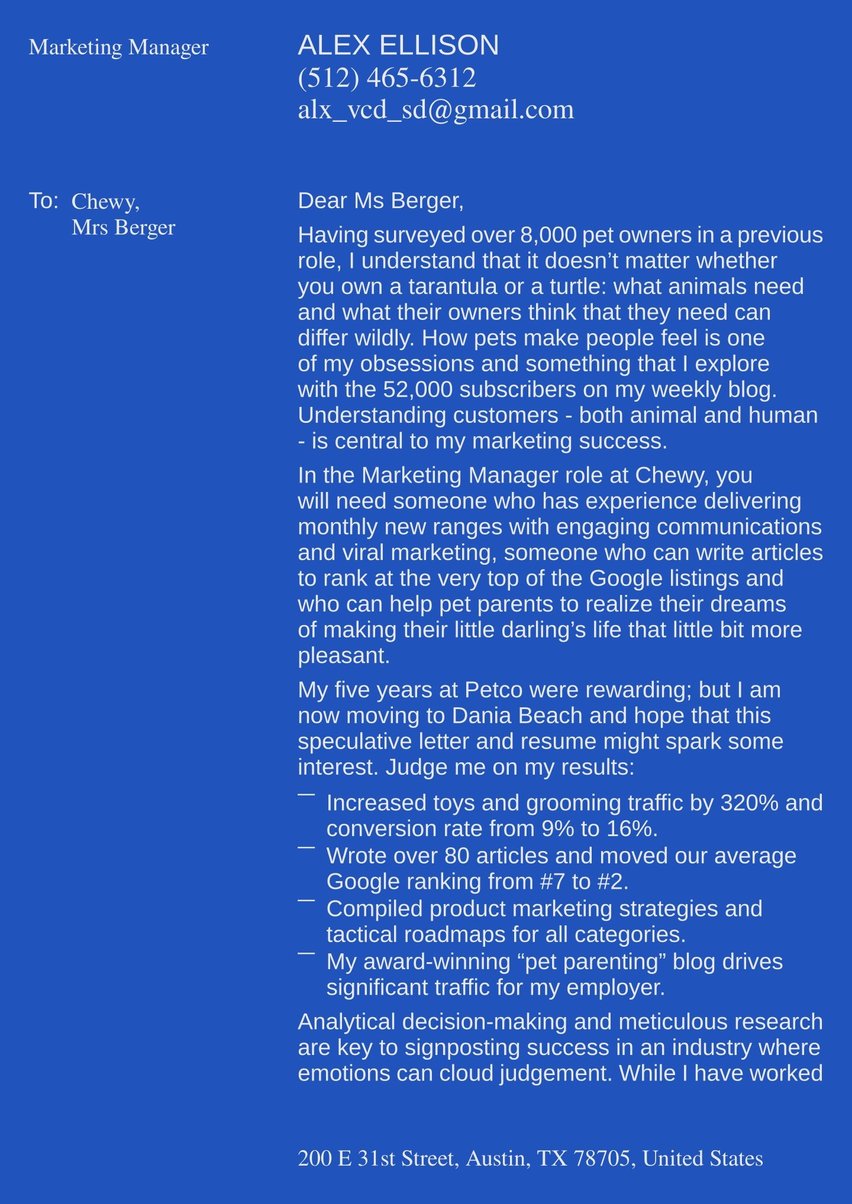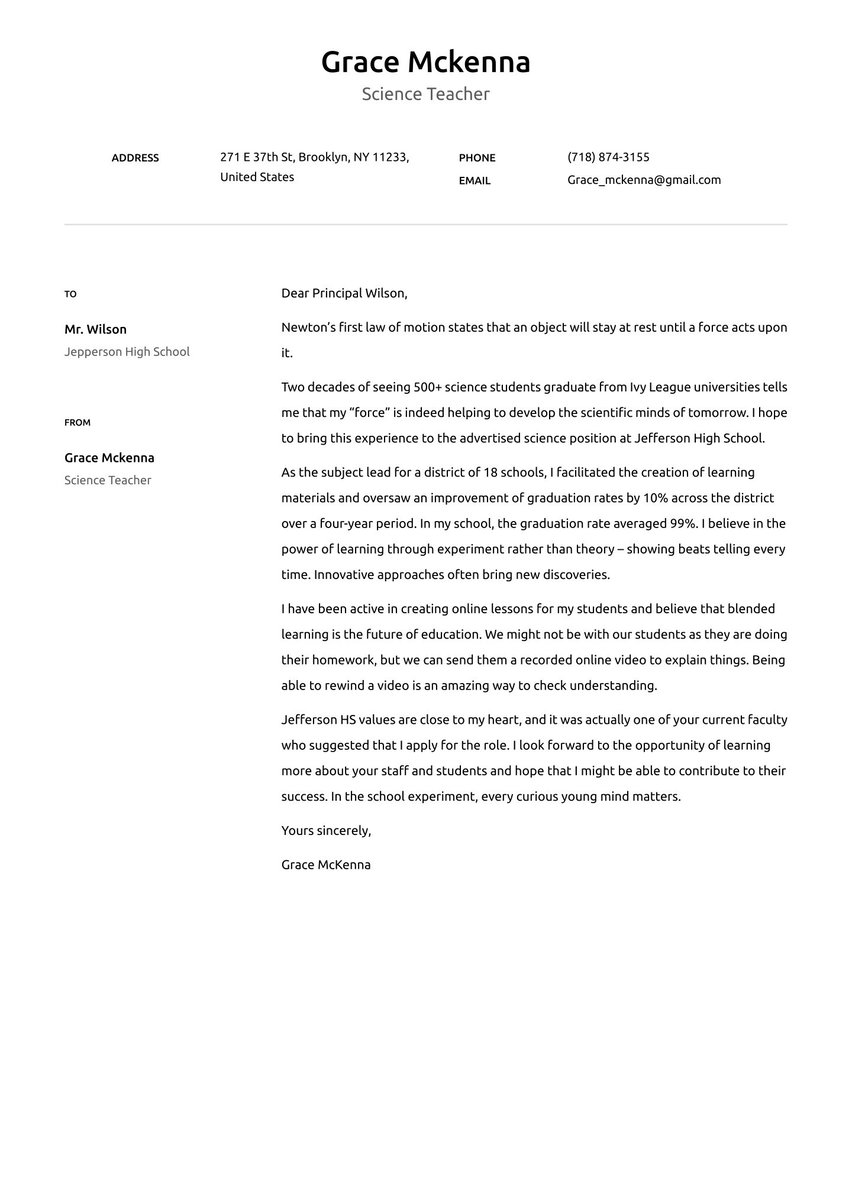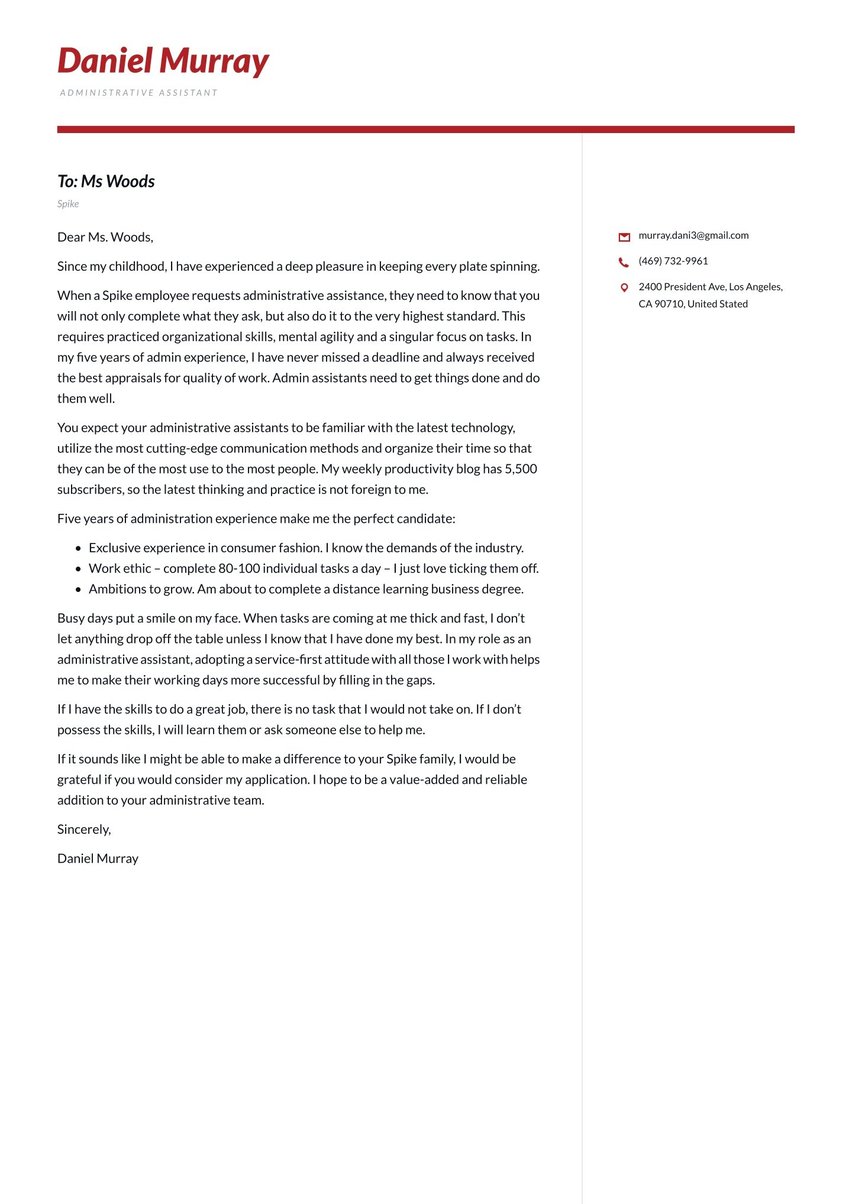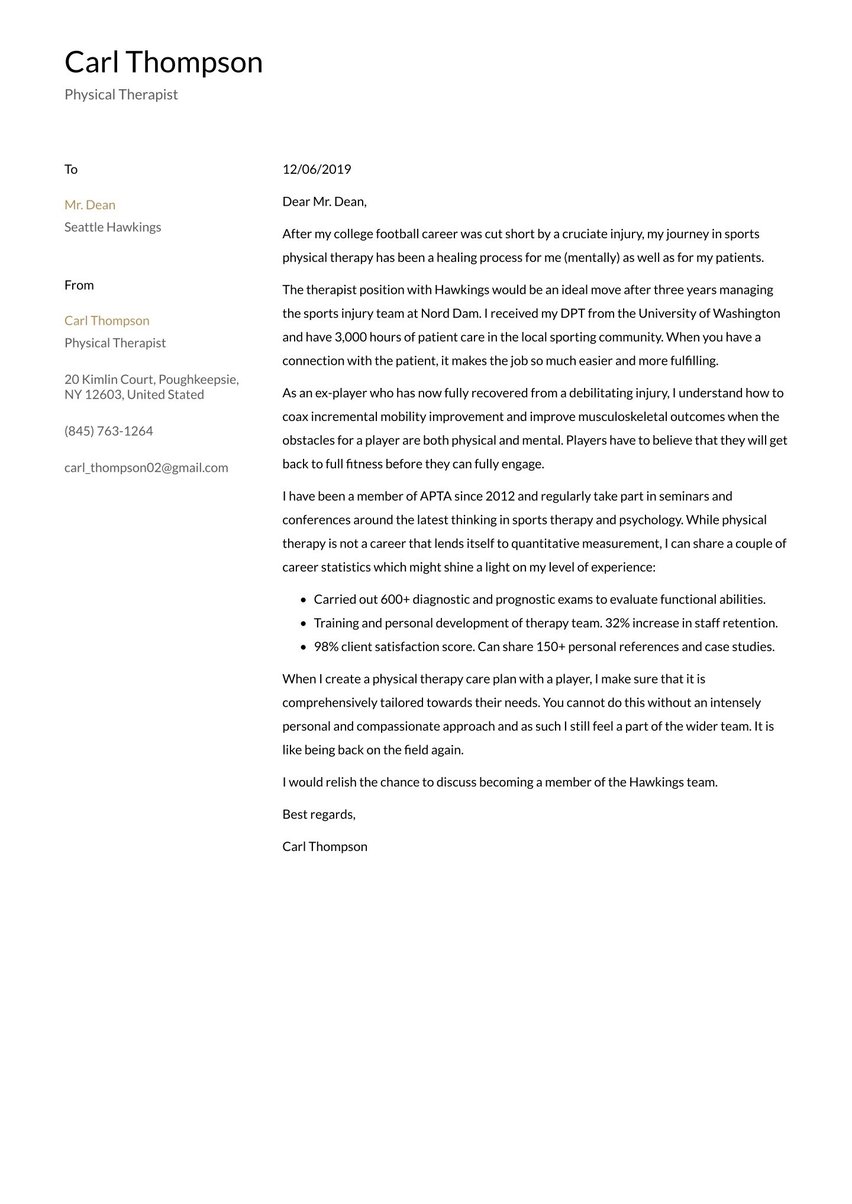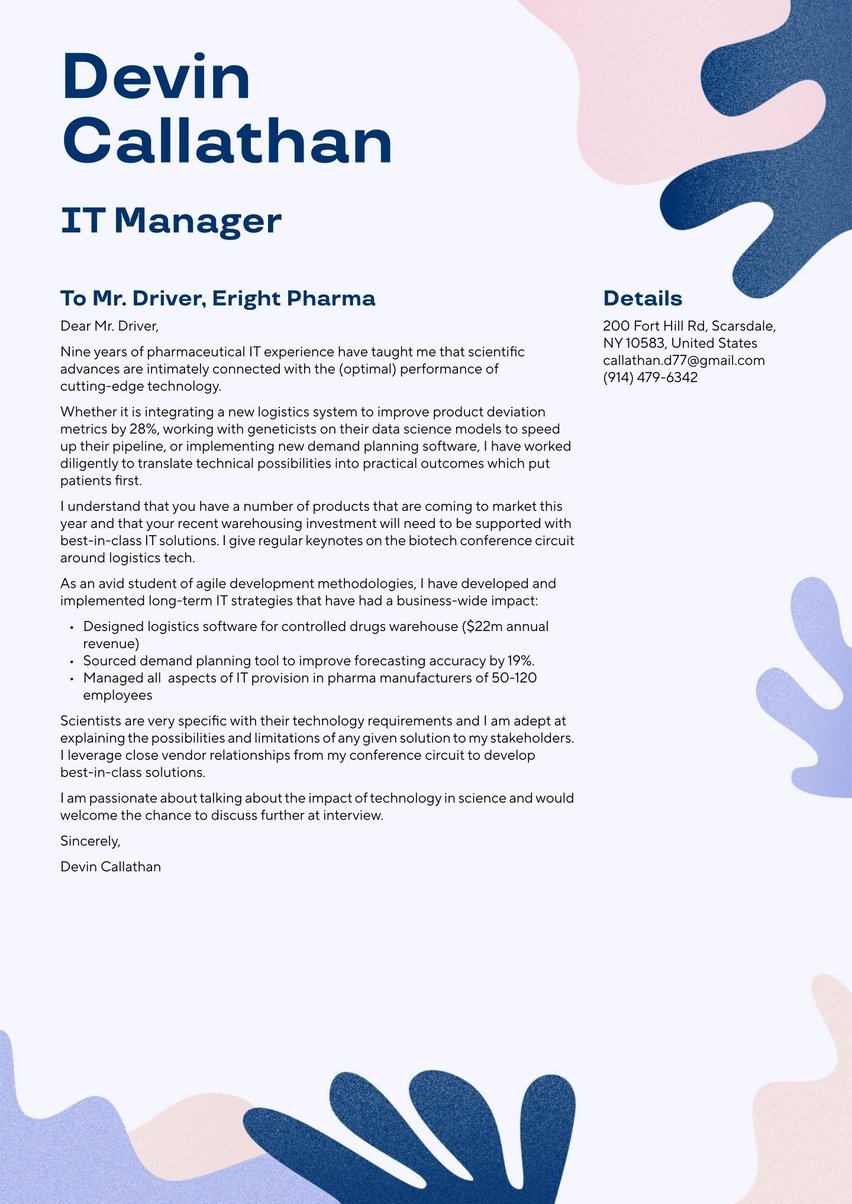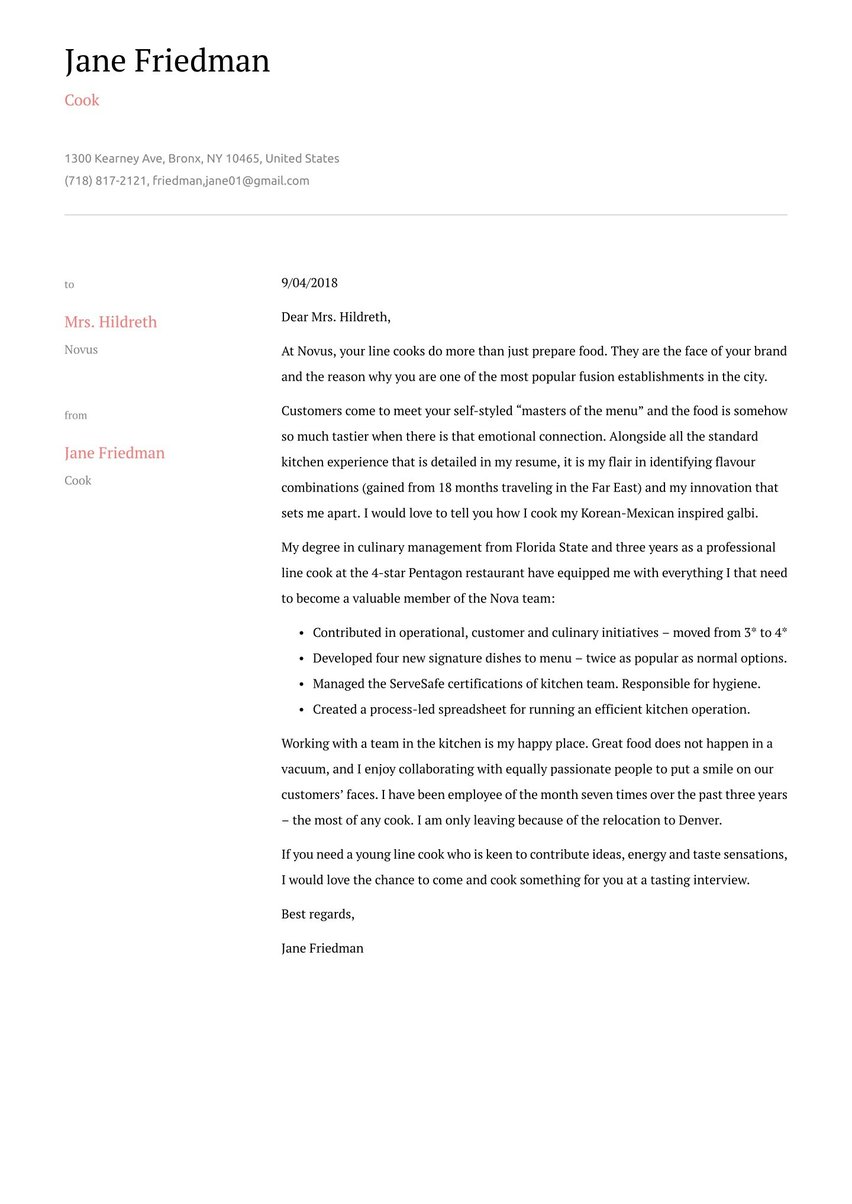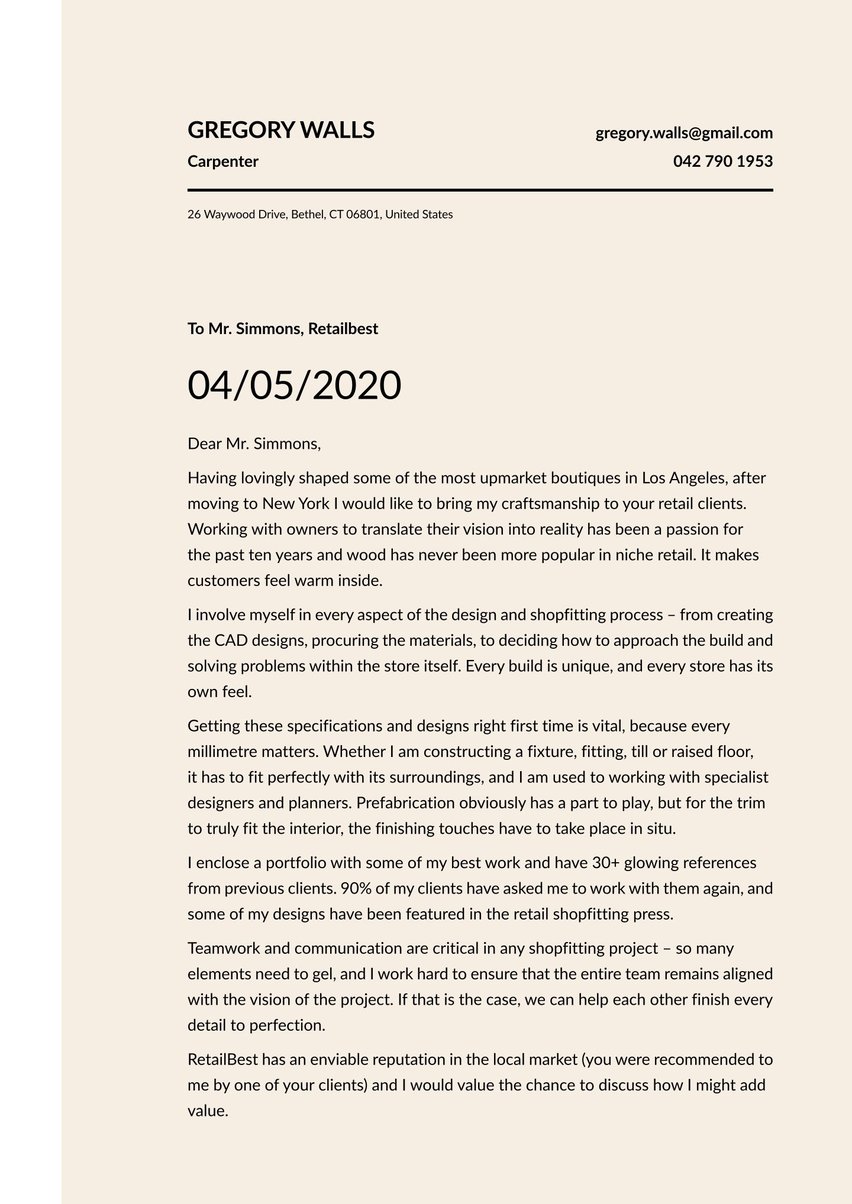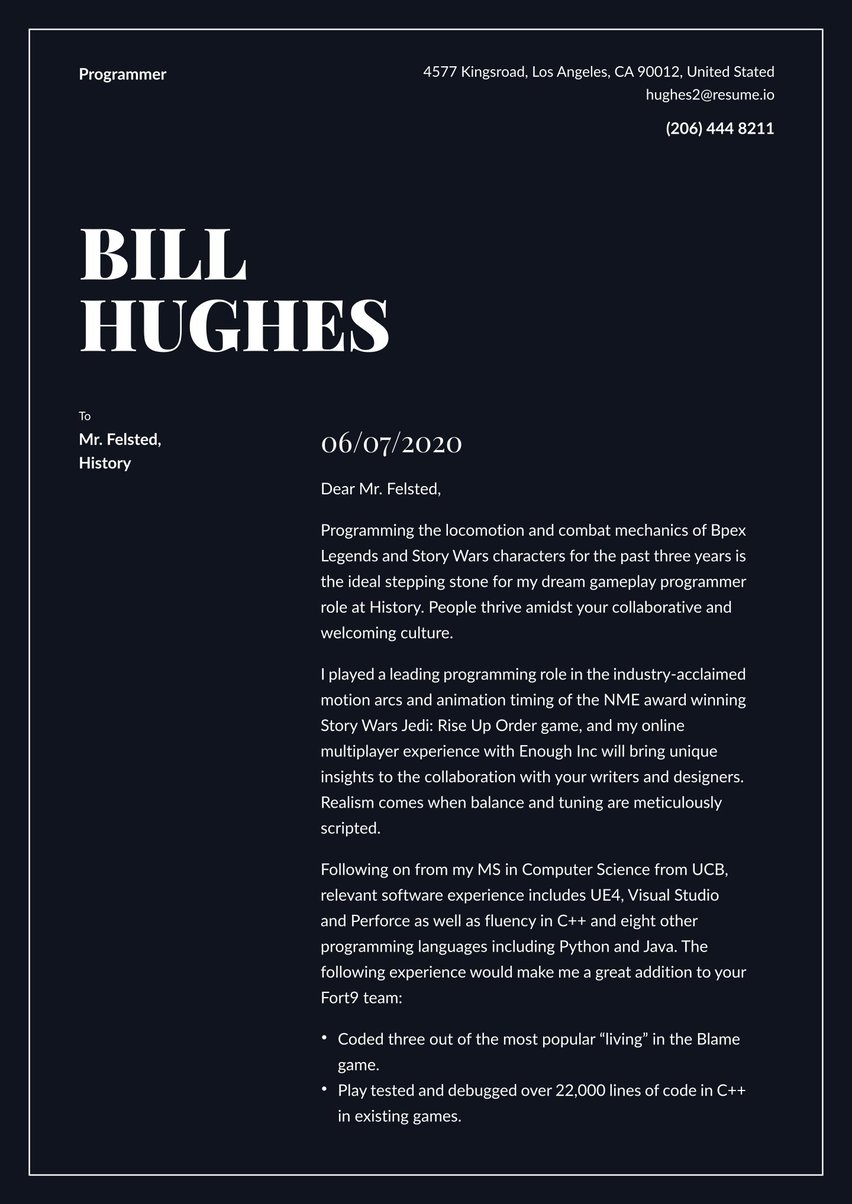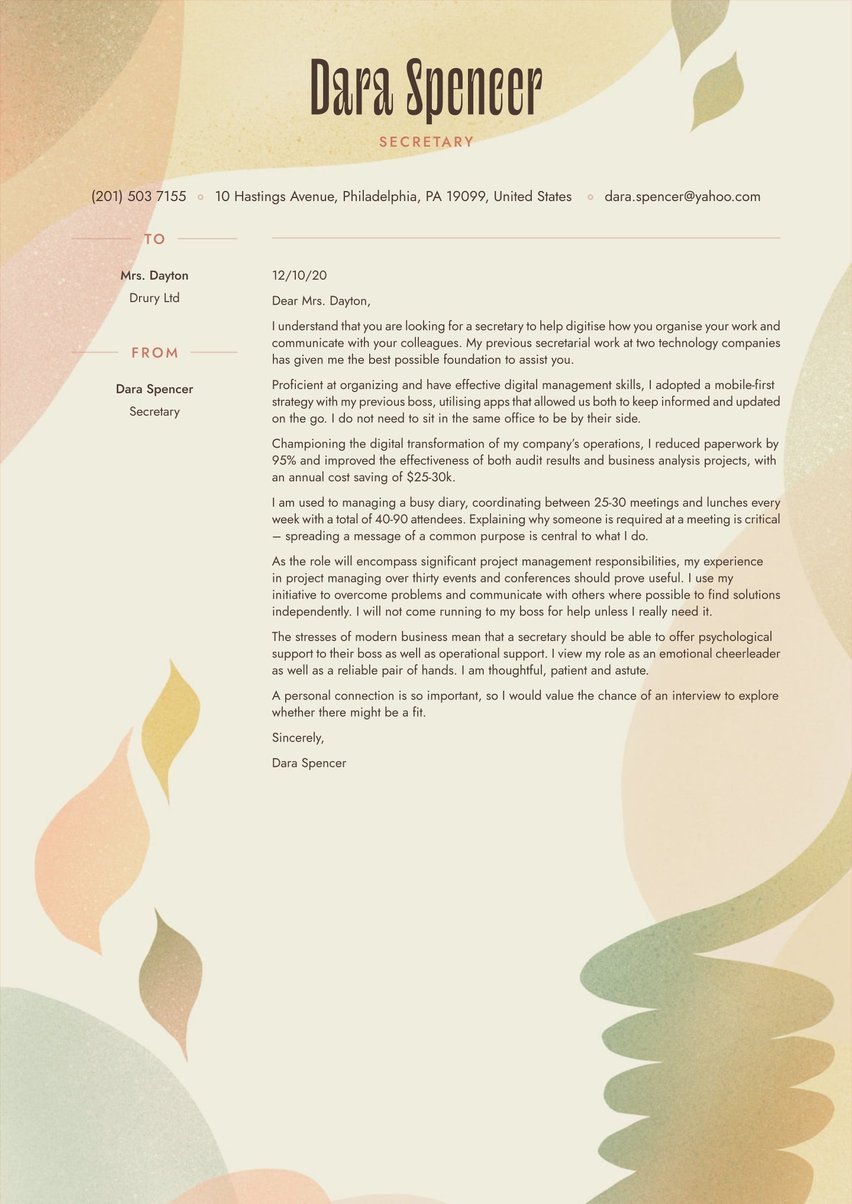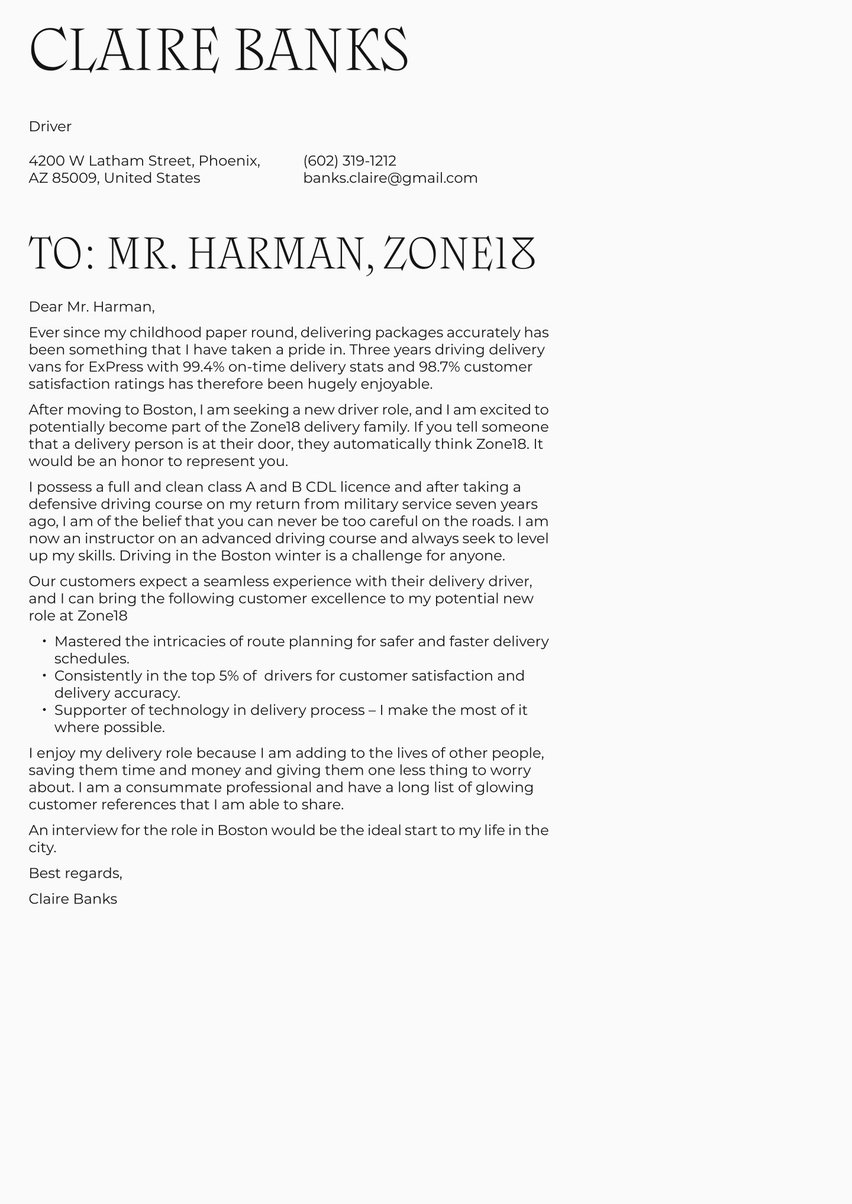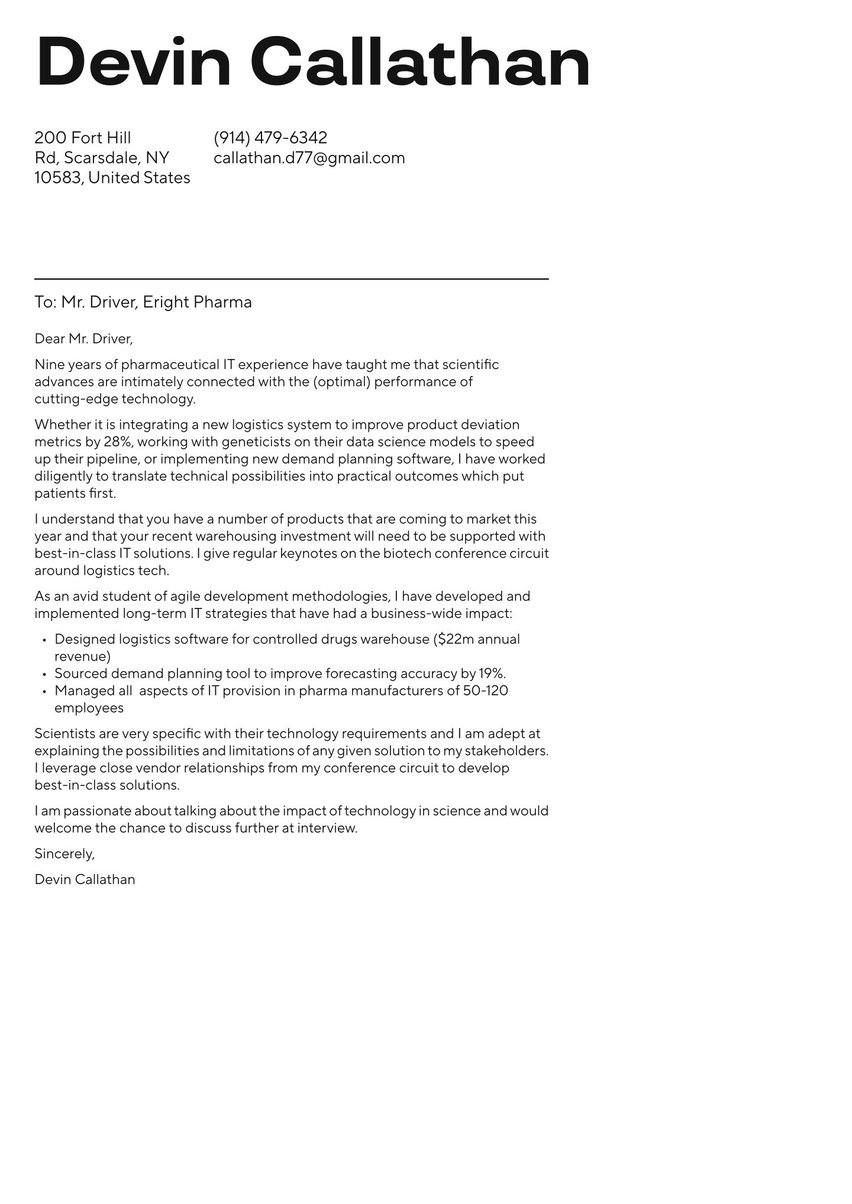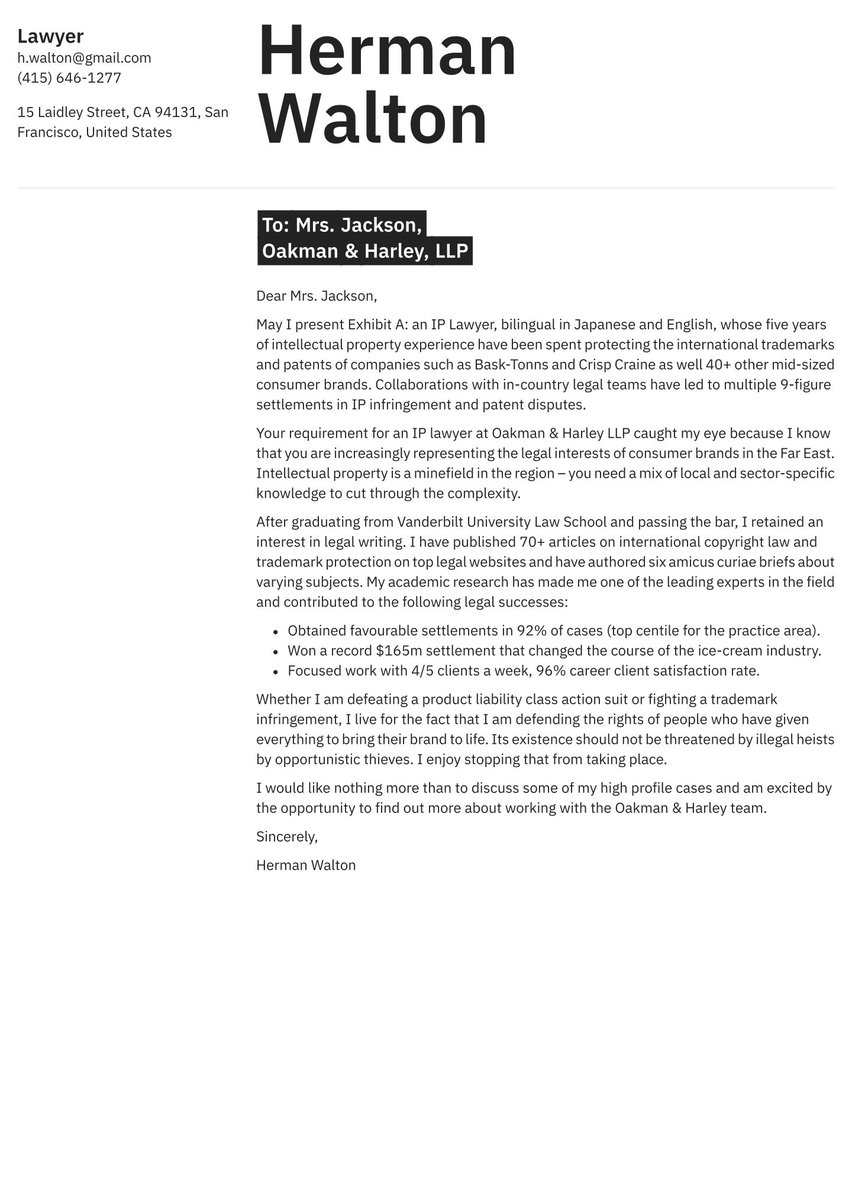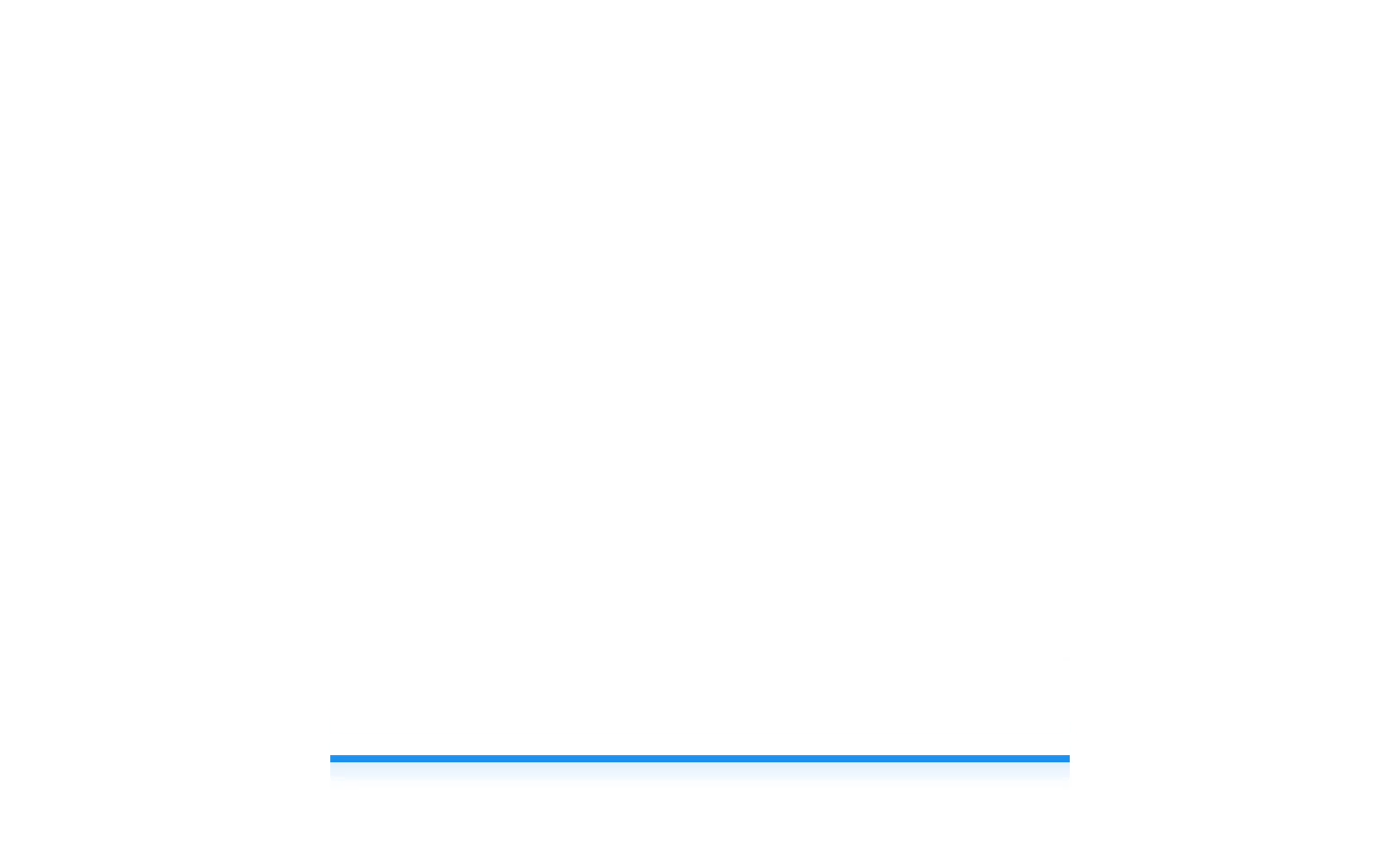Behind every scientific discovery, there's a lab assistant armed with an unrivaled ability to organize chaos. While the glamor of laboratory work portrayed in movies may be a myth, there’s an allure to the routines of lab life which quietly propel us towards progress. But to earn a spot there, you’ll need a winning lab assistant cover letter.
A well-written cover letter can showcase your skills, passion, and qualifications, even if you have little to no experience in the field. Every great scientist has the imagination to match, but it’s normal to need a little help to get your ideas onto paper and craft your professional story into something that’s irresistible to your prospective employer.
Luckily for you, Resume.io is here to help you find the winning formula for your lab assistant cover letter. Having helped millions of jobseekers with job applications to secure their dream roles, we know a thing or two about writing a job-winning cover letter. In this cover letter guide, along with the corresponding lab assistant cover letter example, we’ll cover the following topics to help you write the best cover letter possible:
- How to choose the best cover letter format and what paragraphs the cover letter should include
- How to maximize the effect of each cover letter paragraph (header, greeting, intro, body, and conclusion)
- What approach to take when writing your cover letter
- What mistakes to avoid when writing your librarian cover letter
If you’re still facing a case of writer’s block by the end of this writing guide, Resume.io has a library full of other cover letter examples for your inspiration.
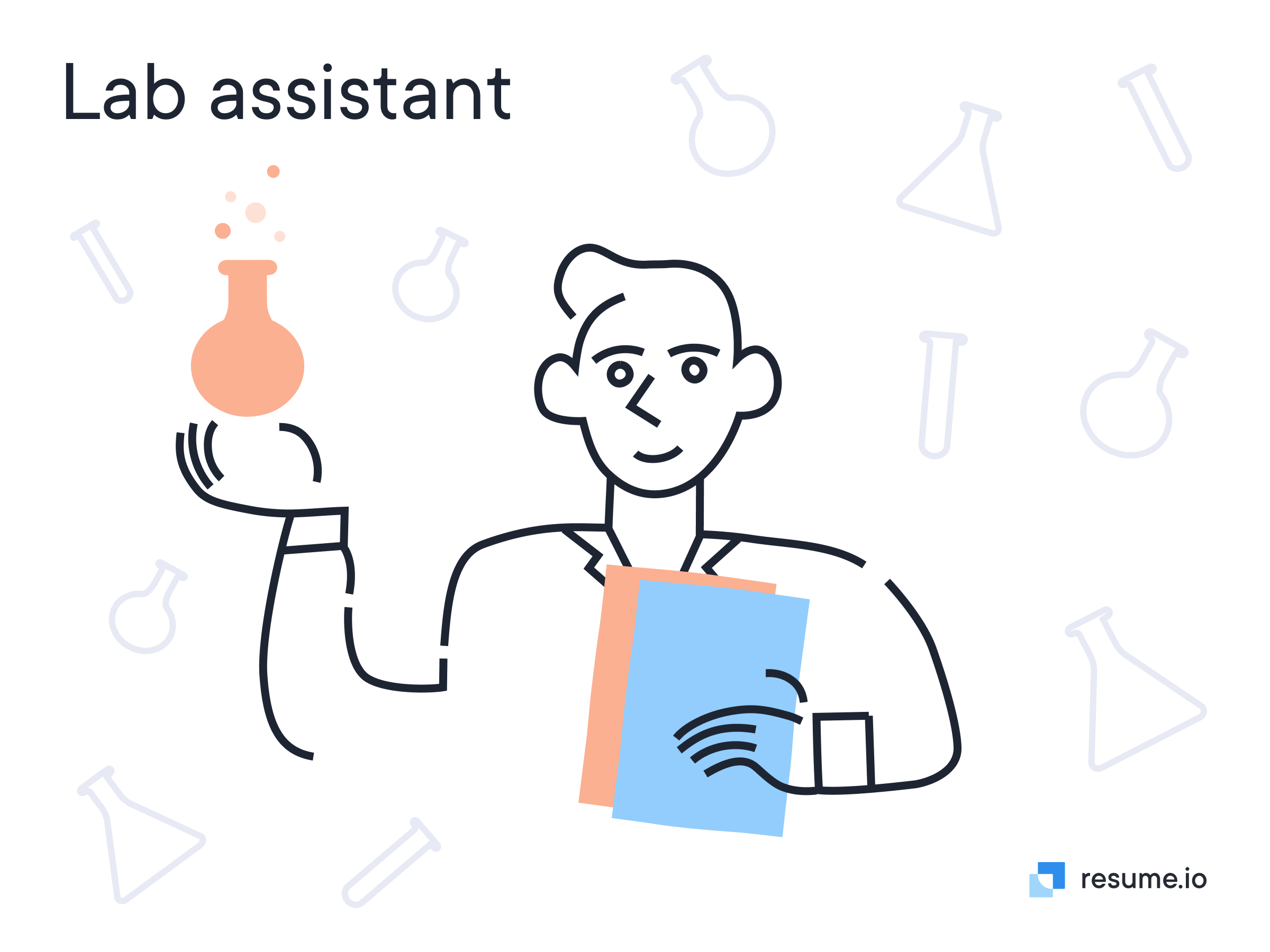
Best format for a lab assistant cover letter
Just like the optimum environment for scientific discovery, the format for your lab assistant cover letter should be clear and organized. Hiring managers will have certain expectations on how a cover letter should be structured. So, make it easier for them to say “yes” to your candidacy by adhering to those expectations.
The format of a lab assistant cover letter should contain the following elements:
- The cover letter header
- The greeting/salutation
- The cover letter intro
- The middle paragraphs (body of the letter)
- The ending paragraph of your cover letter (conclusion and call-to-action)
Re: Lab assistant role
Dear Dr. Brunt,
As a recent Biotechnology graduate from the University of Michigan, I have a wealth of experience from internships and academic research that I can bring to the laboratory assistant role. I look forward to continuing my love for biological exploration in a corporate setting and am excited by your graduate program.
During my academic career, I have honed my skills in project work, mastering lab techniques such as DNA extraction, PCR, plasmid isolation, and gene cloning. My senior thesis on gene editing received a distinction for its novelty and contribution to the broader field.
As an intern at Bioview, I assisted in a project about the production of biofuels from microbial hosts. I handled cell cultures, conducted bioreactor experiments, and performed HPLC for sample analysis. This experience enabled me to refine my technical skills and appreciate the discipline required with lab safety protocols.
I am keen to improve my understanding of computational biology, which is increasingly essential. I am proficient in bioinformatics tools such as BLAST and BioPython. Additionally, I have coding experience in Python and R, which I used for data analysis in a variety of bioinformatics projects during my course and internships.
My blend of hands-on experience, knowledge of molecular techniques, data interpretation skills, and a strong desire to contribute to groundbreaking research would make me a valuable addition to your biotechnology laboratory. I am particularly excited about the opportunity to work in your laboratory given its reputation for innovation and its commitment to solving real-world problems.
I hope to have the opportunity of an interview to learn more about your research priorities. I know that you have many fascinating projects coming up and would love to become a part of your team.
Sincerely,
Tilly Hinton
What are the job market prospects for lab assistants?
Employment of biological technicians alone is set to increase by 9% by 2031, according to the Bureau of Labor Statistics. That’s higher than the national average.
That’s great news for lab assistants like you, but you’ll still need an impressive job application to gain your place in the lab.
If you’re looking for additional inspiration for cover letter writing, you can check out our related cover letter examples:
- Medical Assistant Cover Letter Sample
- Pharmacist Cover Letter Sample
- Physical Therapist Cover Letter Sample
- Medical Receptionist Cover Letter Sample
- Dental Assistant Cover Letter Sample
- Occupational Therapy Cover Letter Sample
- Pharmacy Technician Cover Letter Sample
- Pharmacy Assistant Cover Letter Sample
- CNA Cover Letter Sample
- Healthcare Cover Letter Sample
- Medical Cover Letter Sample
- Physician Assistant Cover Letter Sample
- LPN (Licensed Practical Nurse) Cover Letter Sample
- Doctor Assistant Cover Letter Sample
- Phlebotomist Cover Letter Sample
Cover letter header
A cover letter header that jumps out too much will likely make a lasting first impression for all the wrong reasons. For a lab assistant cover letter, it’s best to keep things simple. Include your full name and contact details in a clear and legible font. After all, you don't want the hiring manager calling the wrong candidate to interview!
You can also add the role you are applying for underneath your name. It’s best to use the same language as is in the job description, if appropriate. For instance, don’t write “lab assistant” if the role is advertised as “laboratory technician” or “research assistant”.
Double-check that all of your contact information is up-to-date and that the formatting matches the rest of your cover letter. You want to make it as easy as possible for the hiring manager to get in touch with you to schedule an interview.
Lean on keywords
There are multiple reasons to use keywords from the job description in your cover letter. Not only will it help you get past automated screening systems. It’s also a great way to show the hiring manager in no uncertain terms that you have the skills they are looking for.
Don't be shy – sprinkle in a few relevant keywords and watch your application rise to the top of the pile.
Cover letter greeting
With a little research and attention to detail, you can create a winning opening to your lab assistant cover letter. Find out who you’re writing to on the company's website or LinkedIn. Addressing the hiring manager by name shows that you have taken the time to do your homework and are genuinely interested in the position.
However, if you're unable to find the name of the person who will be reading your cover letter, don't panic. If after putting in some time and effort the information is nowhere to be found, you could address your letter to the team that you’re applying to. Just make sure that you use a professional and respectful tone throughout your letter.
The trick to nailing the tone of your lab assistant cover letter is to strike a balance between friendliness and professionalism. You want to come across as someone who is easy to work with but also serious about their role as a lab assistant. The greeting sets this tone for the rest of your cover letter. It’s best to stick with the standard greeting “Dear” like in the cover letter sample content below. Avoid using informal greetings like "Hey" or "Hi there," which can come across as unprofessional or even disrespectful.
Cover letter introduction
Think of your cover letter introduction as the hypothesis of your experiment. It should be clear and concise and give the hiring manager a summarized look at what the rest of your lab assistant cover letter will include. You want to grab their attention and make them keen to keep reading.
A strong opening sentence that highlights your interest in the lab assistant position and your relevant qualifications could be a great start. Consider doing some research on the organization and the position before writing your cover letter introduction. This will help you tailor your writing to the specific needs of the employer. For example, some labs may focus on innovation and cutting-edge research, while others may prioritize safety and established procedures. Make sure you highlight the experience that aligns best with their working culture and values.
The overall aim is to show your enthusiasm for the position and explain why you are the best candidate for this lab assistant role, not just why you’re a great lab assistant in general. Writing the introduction last, once you understand the content of the rest of your cover letter, could be a great tip to make this hit right and impress the hiring manager from the start.
The sample content below will help to give you some ideas if you’re experiencing writer’s block.
Dear Dr. Brunt,
As a recent Biotechnology graduate from the University of Michigan, I have a wealth of experience from internships and academic research that I can bring to the laboratory assistant role. I look forward to continuing my love for biological exploration in a corporate setting and am excited by your graduate program.
Cover letter middle part (body)
The middle section of your cover letter is the place to provide some more details on the unique strengths and experiences that make you the best person for the job. While it's important to highlight your achievements, it's equally important to make sure they align with the specific needs of the lab you are applying to.
It never hurts to look into the specific research they are working on and tailor your examples to show how you can contribute to those projects in your capacity as a lab assistant. Try to focus on one or two good anecdotes of past work positions and/or projects. This means you can go into further depth in the short space you have since it’s best to keep your cover letter to one page only.
In these examples, you can provide specific and measurable examples of your accomplishments. Try to use the STAR approach while making sure your cover letter is still a cohesive story. You don’t want it to come across as a list of facts about your lab assistant experience that have been pasted together. Your cover letter should always read as a singular, well-structured document.
During my academic career, I have honed my skills in project work, mastering lab techniques such as DNA extraction, PCR, plasmid isolation, and gene cloning. My senior thesis on gene editing received a distinction for its novelty and contribution to the broader field.
As an intern at Bioview, I assisted in a project about the production of biofuels from microbial hosts. I handled cell cultures, conducted bioreactor experiments, and performed HPLC for sample analysis. This experience enabled me to refine my technical skills and appreciate the discipline required with lab safety protocols.
I am keen to improve my understanding of computational biology, which is increasingly essential. I am proficient in bioinformatics tools such as BLAST and BioPython. Additionally, I have coding experience in Python and R, which I used for data analysis in a variety of bioinformatics projects during my course and internships.
My blend of hands-on experience, knowledge of molecular techniques, data interpretation skills, and a strong desire to contribute to groundbreaking research would make me a valuable addition to your biotechnology laboratory. I am particularly excited about the opportunity to work in your laboratory given its reputation for innovation and its commitment to solving real-world problems.
Show your lab assistant skills with the STAR approach
The STAR approach is a way of structuring any anecdotes or examples of your past achievements. Each of the following stages from this acronym should be clearly addressed throughout your story in a concise way:
- Situation: set the scene with some general information and context that will help your story to make more sense and/or sound more impressive.
- Task: what was the assignment or job that needed to be carried out?
- Action: what did you do in light of this? Remember to focus on your personal contribution rather than what your team or organization did in general.
- Result: how did things turn out? Did you meet or exceed your goals?
Don’t be afraid to quantify this with statistics or money saved. These are measurements that hiring managers love to use to put a clear value on your profile as a lab assistant.
How to close a lab assistant cover letter (conclusion and sign-off)
The cover letter conclusion is like summarizing your findings. Conclude the case you have made throughout your cover letter about why you’d be a fit for this lab assistant role. Reiterate your interest in the position and thank the hiring manager for their consideration. Using a professional sign-off like "Sincerely" is the best way to go.
I hope to have the opportunity of an interview to learn more about your research priorities. I know that you have many fascinating projects coming up and would love to become a part of your team.
Sincerely,
Tilly Hinton
Lab assistant cover letter with no experience
All lab assistants have to start somewhere. If you have no experience in the field, focus on your transferable skills. These are skills that can be applied to any job, such as communication, problem-solving, and teamwork. You could also highlight any relevant coursework, internships, or volunteer work that demonstrates your interest in the field.
Research the company and position before writing your cover letter. This will help you tailor your letter to the job requirements and demonstrate your knowledge of the organization. Particularly if you have no experience as a lab assistant, this can help you to stand out because you can show why you want to be working there.
Use the cover letter as an opportunity to explain why you are passionate about pursuing a career in this laboratory specifically. Often hiring managers are more likely to take a chance on someone who can demonstrate their excitement for this particular lab assistant role - someone who might be lacking experience but can be trained - as opposed to someone with more experience who doesn’t seem as enthused about the workplace.
Key takeaways
- Keep a professional yet personable tone throughout your cover letter.
- Use the STAR method to give some relevant examples of why your profile responds to their needs.
- Quantify your achievements where appropriate with stats that put a number on your value as a lab assistant.
If you need some extra help, we’ve found a formula for success with our professionally designed cover letter templates. Consider checking them out if you simply want to sit down and start your writing.


